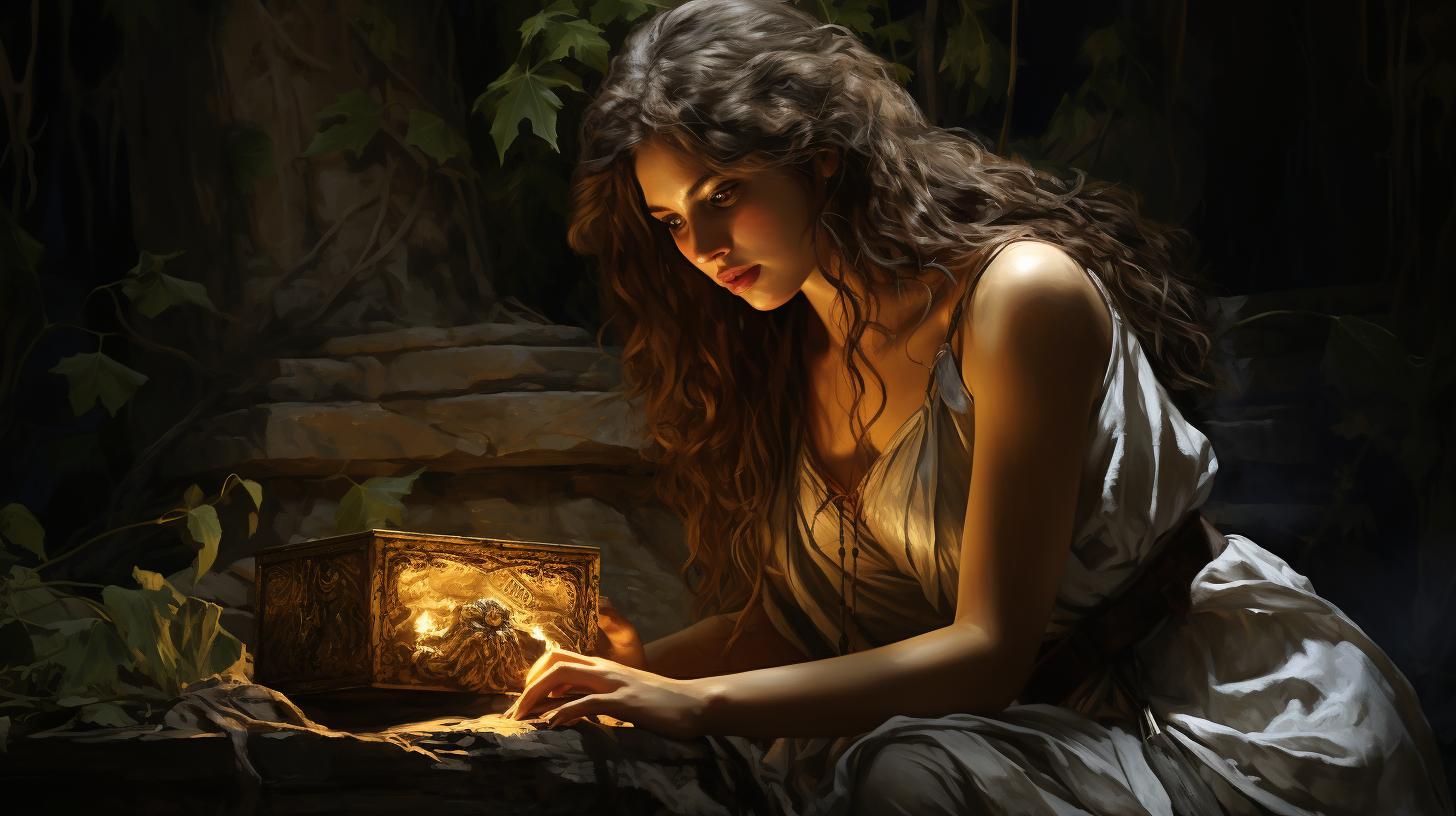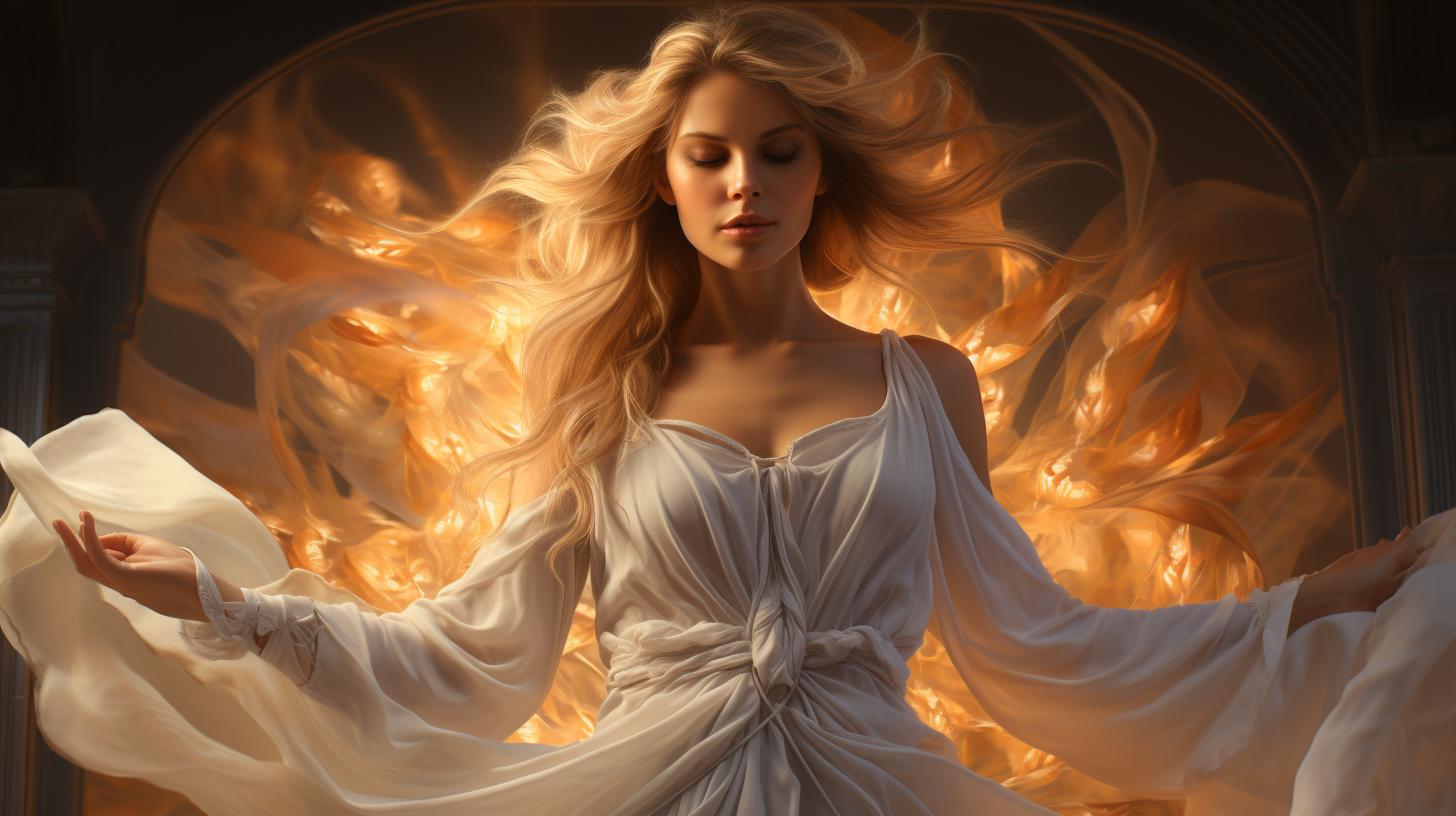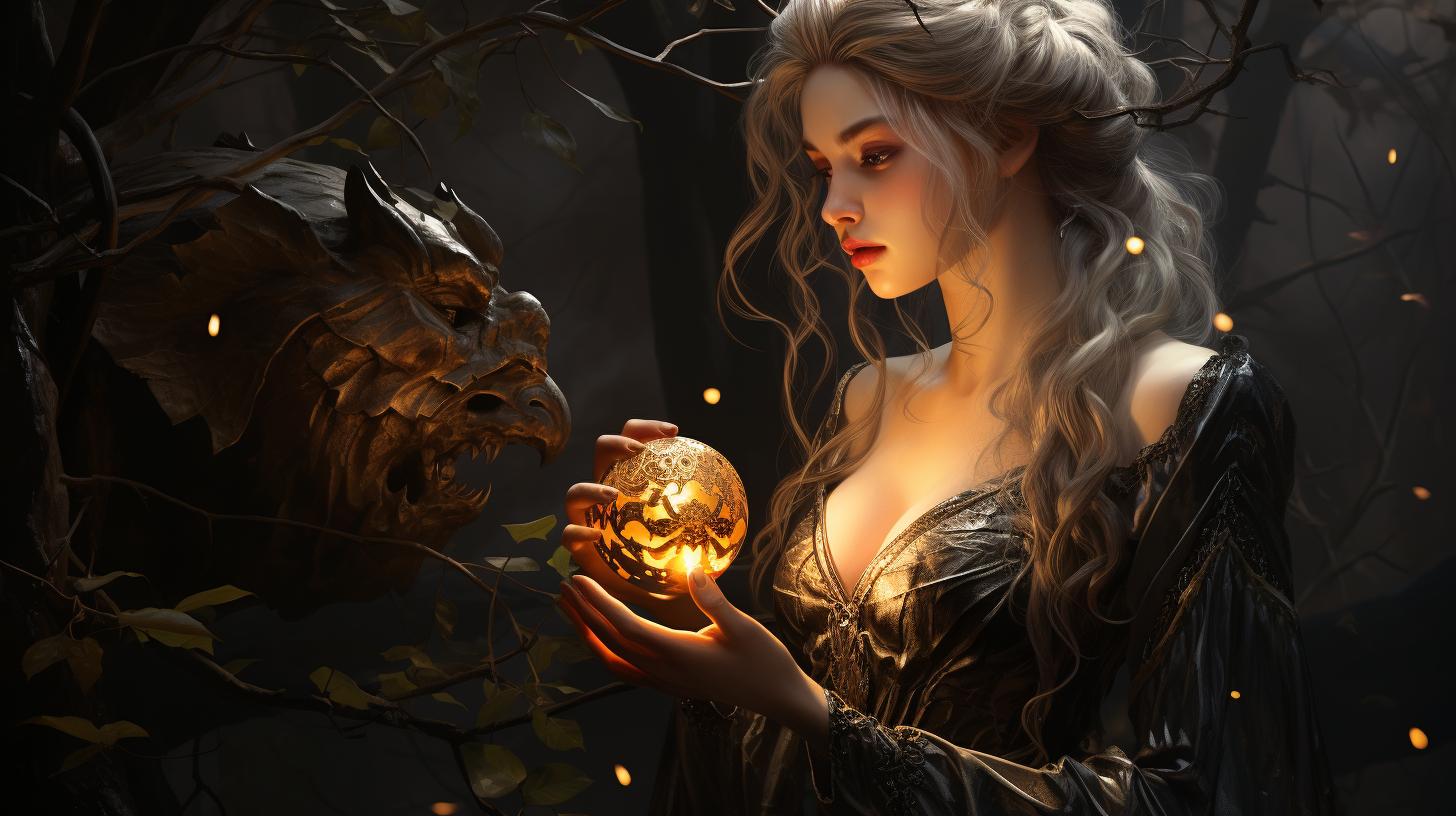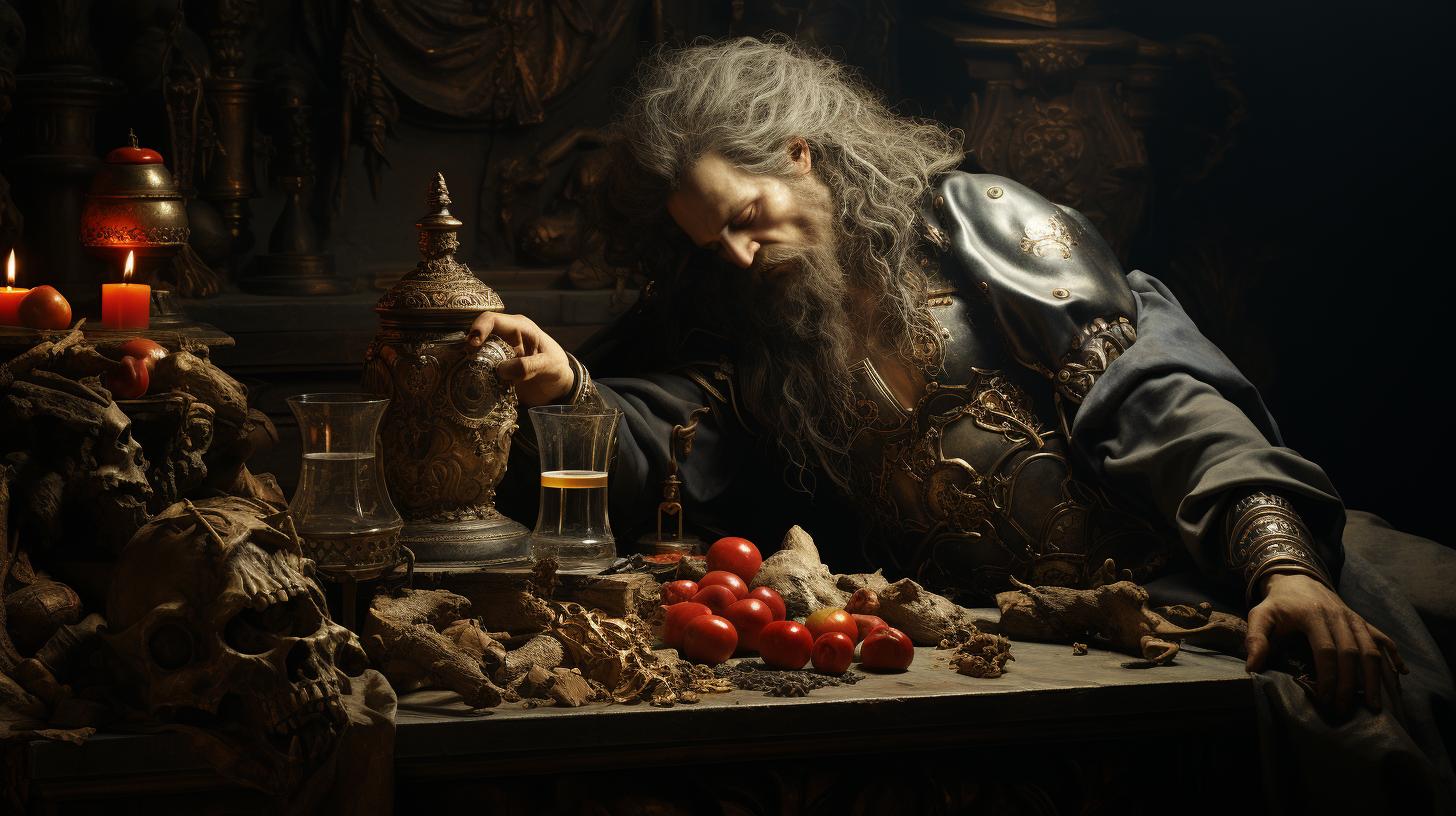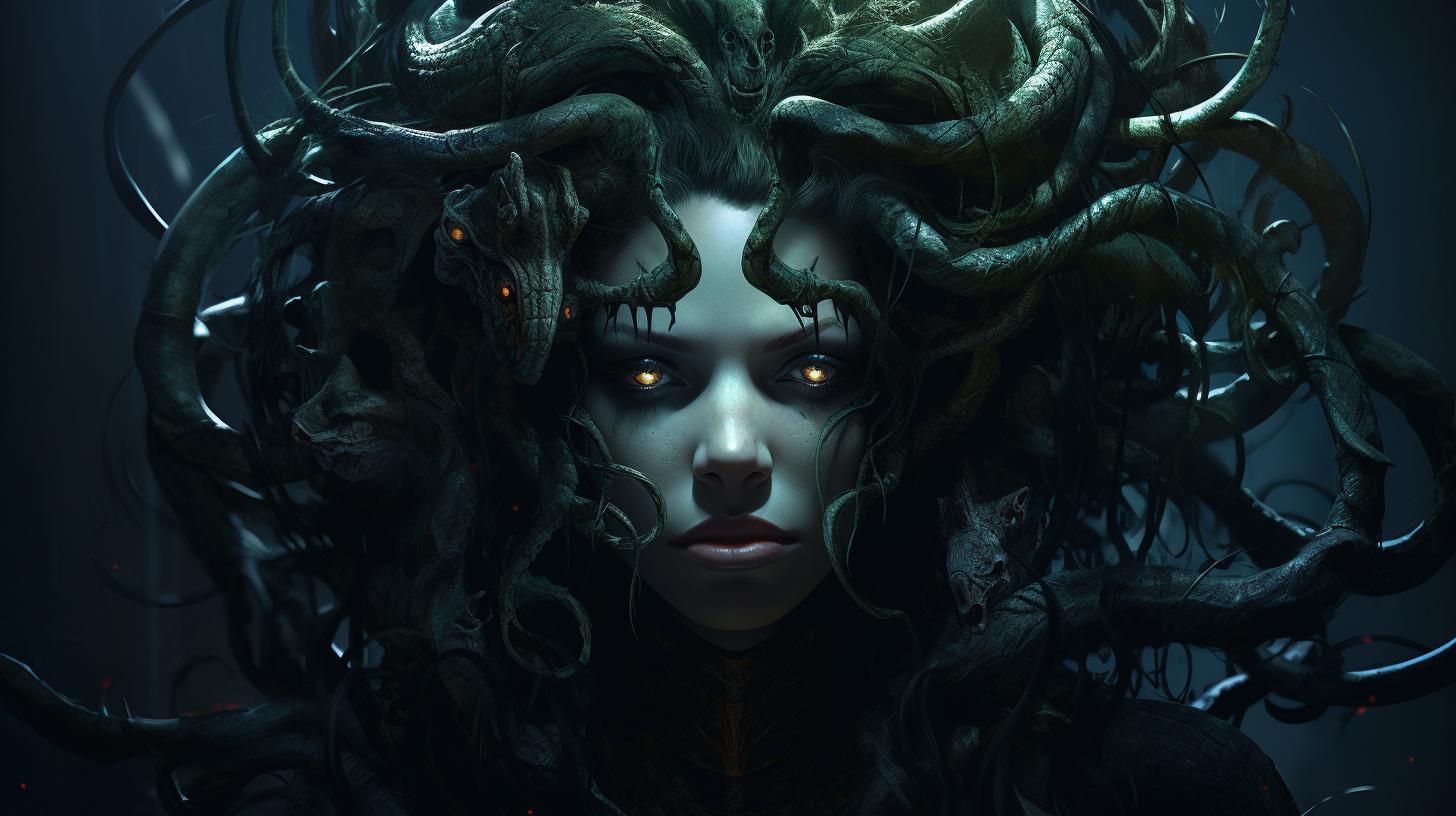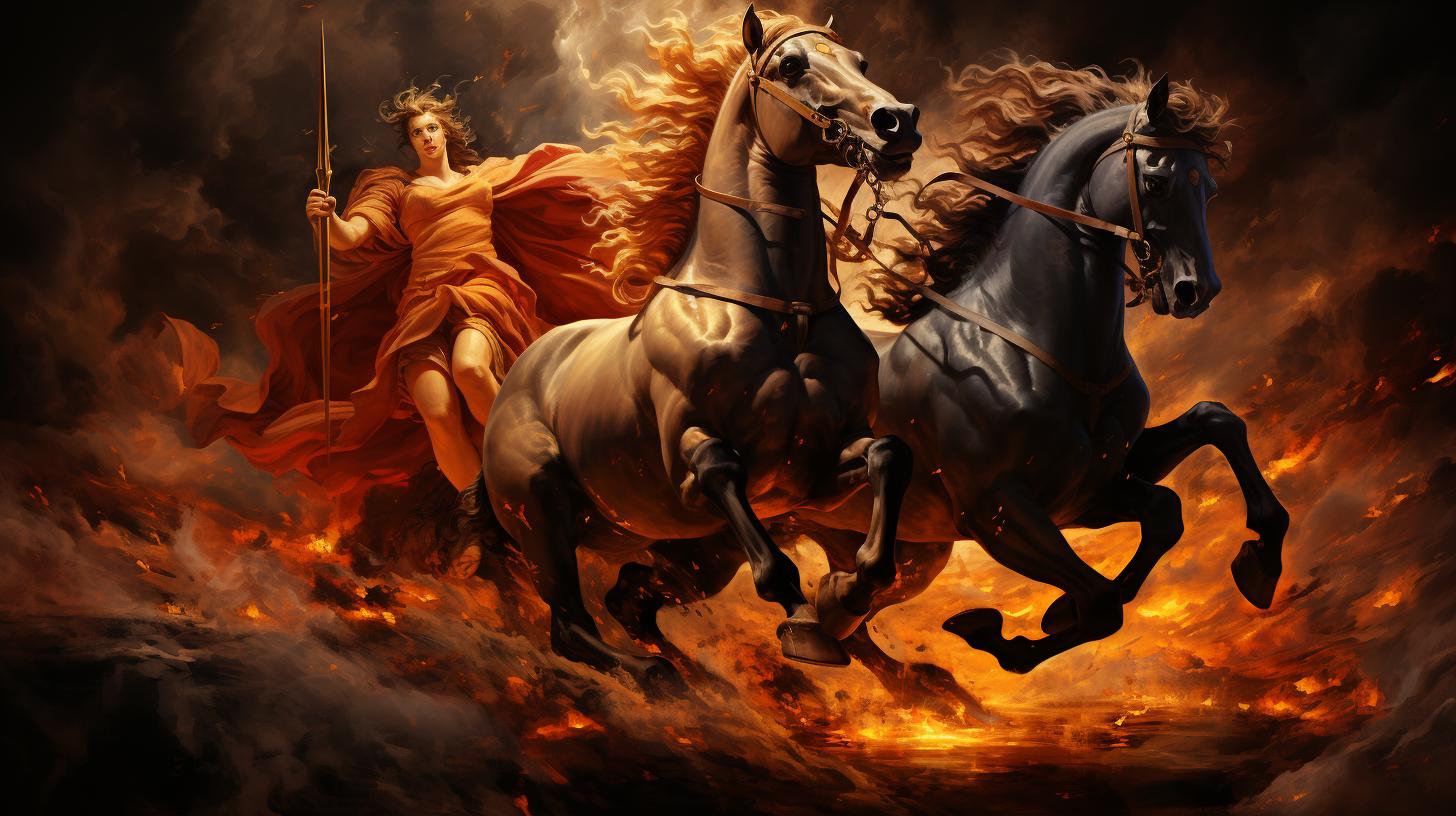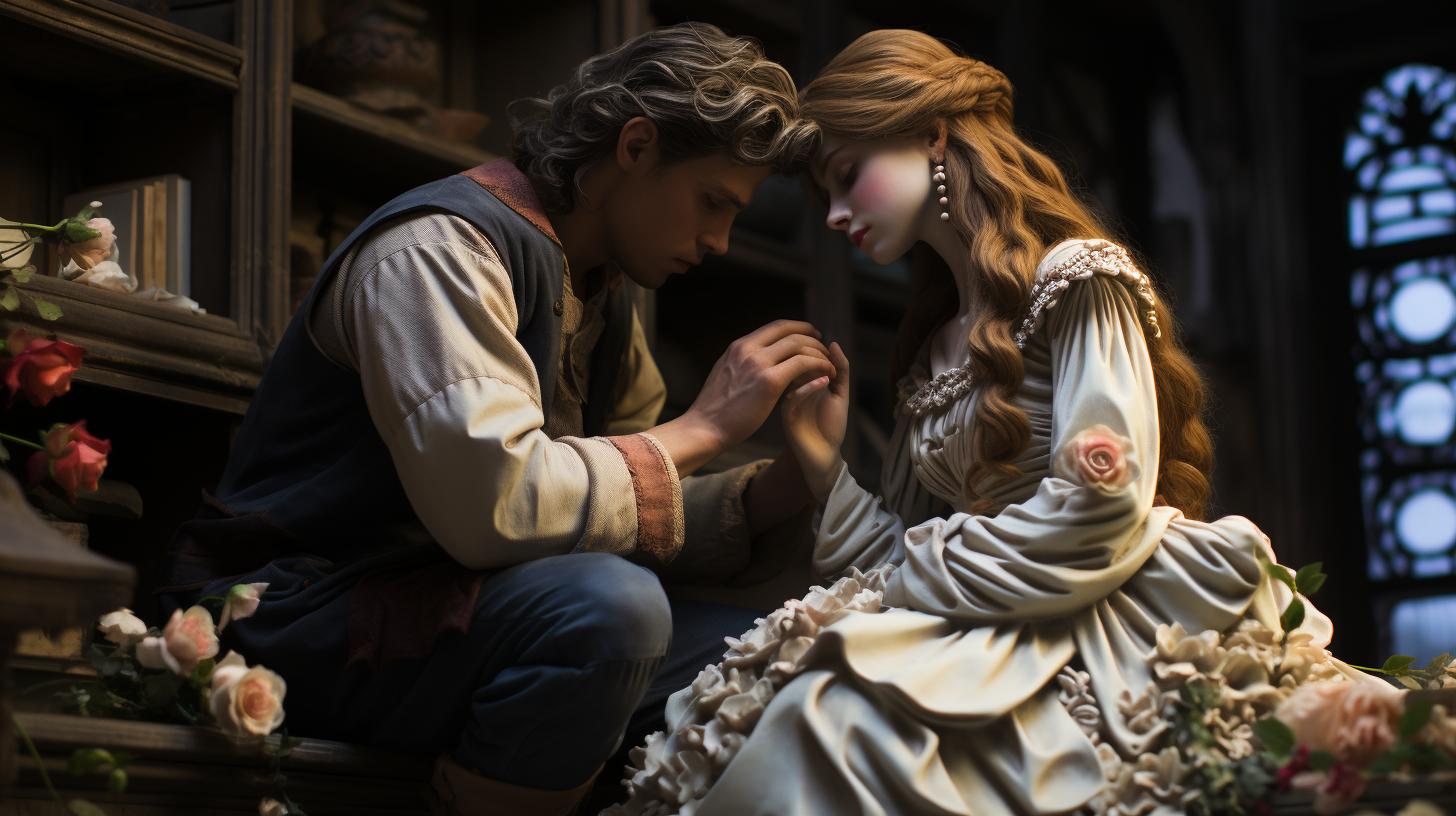Who was Pandora in Greek Mythology: Unveiling the Mysterious Story behind this Legend
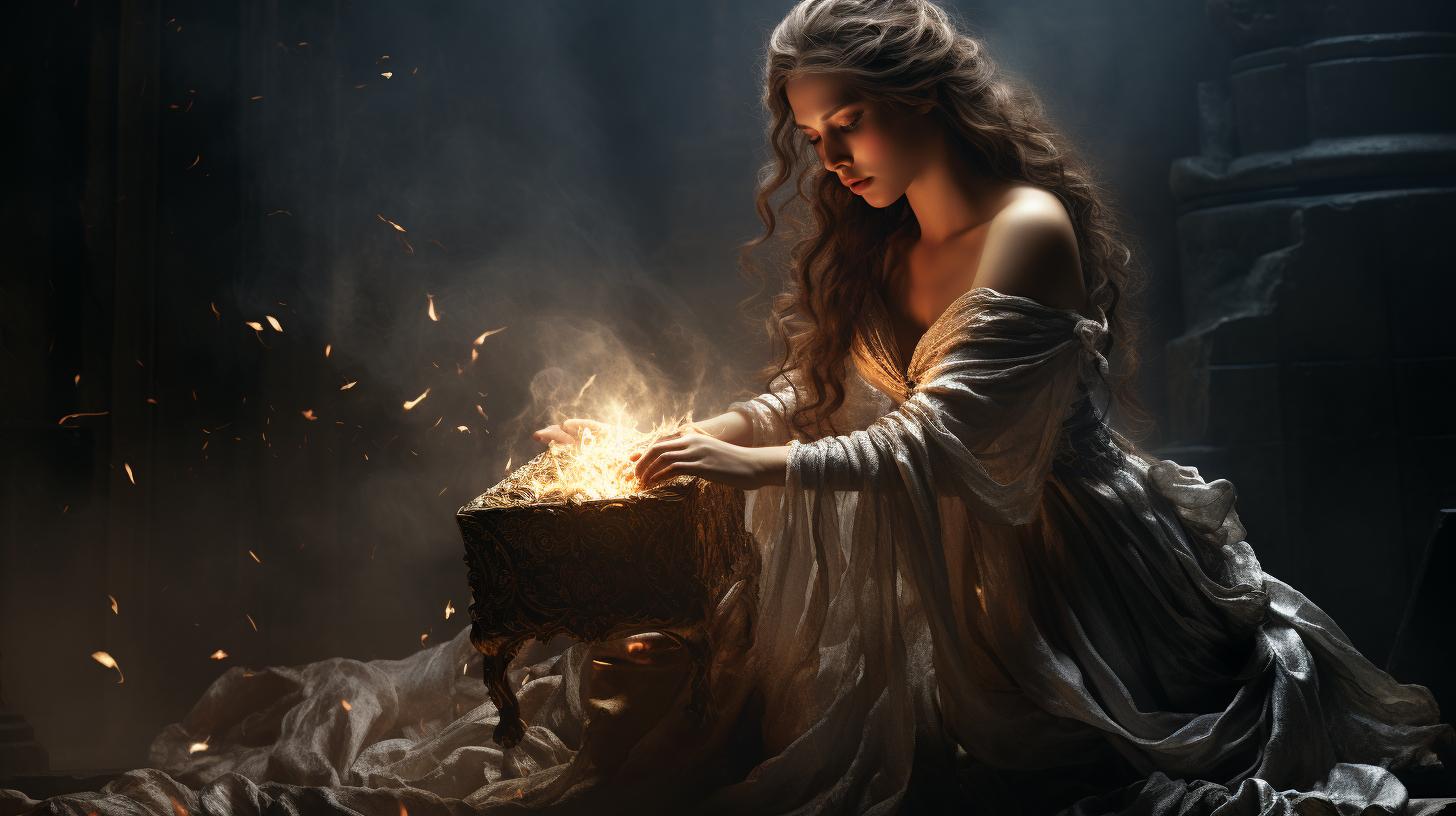
In Greek mythology, Pandora is an intriguing figure whose origins delve into the heart of ancient legends. She was the first woman, created by the gods as a gift and a curse to humanity.
Pandora’s curiosity led her to open a forbidden box, unleashing the world’s evils upon mankind. However, amidst the chaos, she also discovered a glimmer of hope. This article aims to explore Pandora’s role in Greek mythology, her enduring legacy, and her influence in various forms of art and popular culture.
The Origins of Pandora: Exploring Greek Mythology
The Greek Gods and Goddesses
In Greek mythology, a pantheon of gods and goddesses ruled over various aspects of the world. These deities possessed immense power and played significant roles in shaping the universe and the lives of mortal beings.
Among the well-known figures in Greek mythology are Zeus, the king of the gods, Athena, the goddess of wisdom, and Poseidon, the god of the sea.
Prometheus and Epimetheus: Brothers at Odds
Prometheus and Epimetheus were two Titans, brothers who stood on opposite sides of an important decision.
Prometheus, known for his intelligence and foresight, chose to support the humans and aided them with his gifts. Epimetheus, on the other hand, lacked the same level of caution and made impulsive choices that often had dire consequences.
The Creation of Pandora: The First Woman
In Greek mythology, Zeus sought to punish Prometheus for stealing fire from the gods and giving it to the humans. As part of his revenge, Zeus ordered the creation of Pandora, the first woman.
Each god bestowed her with unique gifts, including beauty, charm, and curiosity. She was then sent to Epimetheus as his bride, but Pandora’s arrival would set in motion a series of events that would forever change the world.
This story is a fascinating exploration into the origins of Pandora and the intricate relationships between gods and mortals, leading to the emergence of the first woman in Greek mythology.
Pandora’s Role in Greek Mythology
Pandora, the enigmatic figure in Greek mythology, played a significant role in shaping the narrative of human existence. Delving into Pandora’s story unveils the complex dynamics between the gods and mortal beings, as well as the consequences of curiosity and the power of hope.
This section explores Pandora’s multifaceted role, examining her curiosity, the release of the world’s evils, and the gift of hope within the infamous box.
Pandora’s Curiosity: Unveiling the Box’s Secrets
Pandora’s insatiable curiosity stands at the center of her mythological tale. Created by the gods as a punishment for Prometheus, Pandora was given a box and explicitly instructed never to open it.
However, her overwhelming curiosity overcame her, leading her to disregard the warning and unlatch the box’s lid, unleashing a chain of events that would forever alter the course of humanity.
The Evils of the World: Unleashed from the Box
As Pandora lifted the lid of the forbidden box, a torrent of relentless evils swept across the world.
From disease and suffering to envy and greed, Pandora’s moment of curiosity led to the proliferation of every imaginable affliction. The unleashed evils became an intrinsic part of human existence, shaping the trials and tribulations experienced throughout history.
Pandora’s Hope: The Last Gift within the Box
Amidst the chaos, Pandora discovered a silver lining: a tiny vessel of hope hidden within the box. The ancient texts hint at this final gift, representing the resilience and optimism that persists even in the face of adversity.
On the surface, Pandora’s action may seem like a grave mistake, but the presence of hope signifies the potential for redemption and renewal.
This section sheds light on the nuances of Pandora’s role in Greek mythology.
From her insatiable curiosity that sparked consequences to the release of worldwide evils and the glimmering hope that remained, Pandora’s influence on the human narrative continues to captivate and inspire various interpretations.
Pandora in Ancient Texts and Artifacts
Depictions in Greek Vase Paintings
Pandora, the infamous character from Greek mythology, has left her mark on numerous ancient Greek vases. These depictions showcase her creation, her encounter with the forbidden box, and the consequences that followed.
The skilled artisans carefully depicted Pandora’s alluring beauty and curiosity that ultimately led to the downfall of humanity. In these exquisite and detailed scenes, Pandora’s enigmatic presence is captured, perpetuating her enduring legacy.
Pandora in Hesiod’s Theogony and Works and Days
Hesiod, the ancient Greek poet, immortalized Pandora in his epic poems, “Theogony” and “Works and Days.” In these influential works, Hesiod presents the myth of Pandora, attributing her creation to Zeus and detailing the sequence of events that unfolded.
The Theogony provides insights into Pandora’s origins, portraying her as a punishment for Prometheus’ transgressions against the gods. In Works and Days, Hesiod delves further into Pandora’s role in introducing suffering and hardships to humanity, serving as a cautionary tale against curiosity and disobedience.
Roman Biography and Mythology: Pandora’s Influence
The influence of Pandora’s mythography extended beyond ancient Greece and infiltrated Roman mythology and literature. Roman writers, such as Ovid and Apollodorus, incorporated Pandora and her infamous box into their own narratives.
The Romans adopted the Greek myth, weaving it into their cultural landscape and adding their unique perspectives. Pandora’s portrayal in Roman sources highlights her as a symbol of the inherent flaws within humanity and the dangers of succumbing to temptation.
Unraveling Pandora’s Legacy
Pandora’s story in Greek mythology has had a profound impact on the human race, leaving an enduring legacy that transcends time. From the symbolism of Pandora’s box to the various interpretations and legends surrounding her, Pandora continues to captivate our imagination.
Pandora’s Impact on the Human Race
Pandora’s creation and subsequent actions have had far-reaching consequences for humanity. As the first woman, she was entrusted with a box that contained all the evils of the world. When Pandora’s curiosity got the better of her and she opened the box, these evils were released into the world, unleashing chaos and suffering.
The myth of Pandora reflects the duality of human existence, showcasing the inherent curiosity and flaws that define us. Pandora’s actions serve as a cautionary tale, reminding us of the consequences that can arise from succumbing to our human weaknesses.
Her impact is felt in our collective consciousness, influencing how we perceive the nature of human existence and the choices we make.
The Symbolism of Pandora’s Box
Pandora’s box has become synonymous with the concept of unleashing unforeseen consequences or hidden troubles. The box serves as a metaphor for the Pandora’s curiosity and the unintended ramifications that can arise from satisfying one’s curiosity.
It reminds us of the importance of caution and the potential repercussions of our actions.
The symbolism of Pandora’s box extends beyond Greek mythology and has seeped into various aspects of popular culture.
It serves as a reminder that our actions, no matter how well-intentioned, can have unintended and far-reaching consequences. It urges us to approach life’s uncertainties with prudence and awareness.
Pandora’s Enduring Presence: Legends and Interpretations
Throughout history, Pandora’s story has been reimagined and interpreted in different ways.
From ancient Greek vase paintings to Roman biographies and beyond, countless variations of Pandora’s tale exist. These interpretations often focus on different aspects of her character and the implications of her actions.
Pandora’s enduring presence in various mythologies and artistic representations showcases the myth’s universal appeal. Artists, writers, and thinkers have grappled with the complexities of Pandora’s story, offering their own insights and interpretations.
Whether she is depicted as a temptress, a curiosity-driven heroine, or a catalyst for change, Pandora continues to captivate our imagination and invite discussion on the nature of humanity.
In conclusion, Pandora’s legacy extends beyond Greek mythology, leaving a lasting impression on our understanding of human nature and the consequences of our actions.
The symbolism of Pandora’s box serves as a cautionary reminder, urging us to approach life’s uncertainties with caution. Pandora’s enduring presence in various legends and interpretations reflects her timeless relevance and continued impact on our collective consciousness.
Pandora in Popular Culture
Pandora, the enigmatic figure from Greek mythology, has left a lasting imprint in popular culture. Over the centuries, her story has been reimagined, referenced, and adapted in various forms of entertainment.
From literature and poetry to film and television, Pandora’s presence continues to captivate audiences and inspire artistic interpretations. Let us explore how Pandora has become a mesmerizing muse in popular culture.
Pandora in Literature and Poetry
Pandora’s mythological tale has found its way into the pages of numerous literary works and poetic compositions. Many authors have drawn inspiration from her story, weaving it into their narratives to explore themes of curiosity, consequences, and the human condition.
From classic texts to modern novels, Pandora’s complex character and her infamous box have provided rich material for literary exploration.
Pandora’s Appearances in Film and Television
The visual medium of film and television has embraced Pandora’s story, offering a visual representation of her myth and its consequences. From epic Hollywood productions to thought-provoking independent films, Pandora has made appearances in various cinematic adaptations.
Directors and screenwriters have utilized her mythical attributes to enhance plotlines, often delving into the moral dilemmas and lessons that her story entails.
Contemporary References and Adaptations
In addition to traditional mediums, Pandora’s presence can be felt in contemporary references and adaptations across various art forms. Artists, musicians, and performers have incorporated Pandora’s symbolism and story into their works, be it through paintings, sculptures, music, or theatrical performances.
These interpretations provide a fresh lens through which to view Pandora’s enduring legacy, allowing for new dialogues and perspectives on her mythological significance.
In conclusion, Pandora’s ambiguous character and her fateful encounter with the forbidden box have transcended the realms of ancient mythology and embedded themselves in popular culture.
From the pages of literature to the silver screen and beyond, Pandora’s enduring presence continues to intrigue and inspire, serving as a reminder of the timeless allure of Greek mythology.
.

